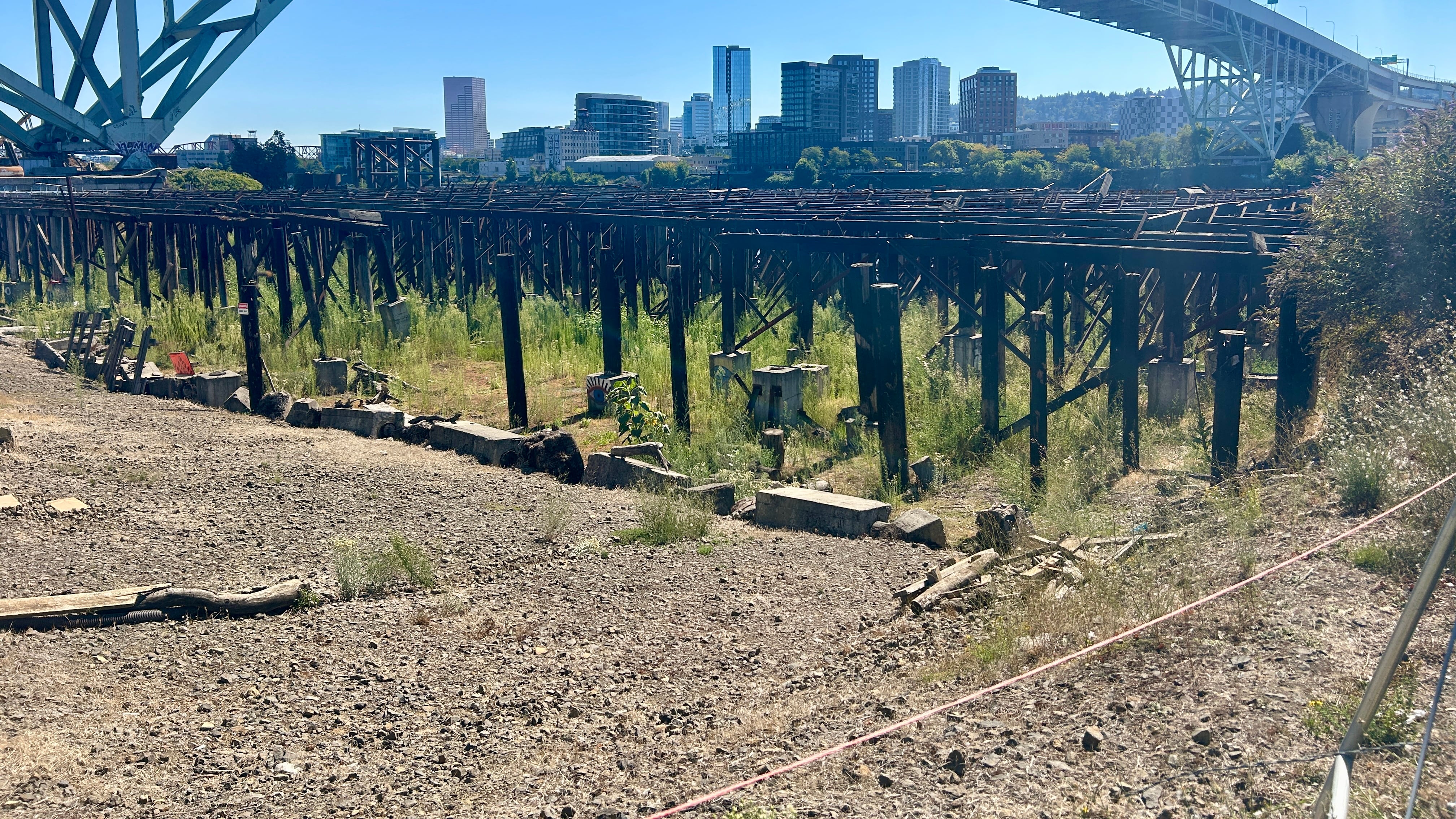- ADDRESS: 1300 N River St.
- YEAR BUILT: 1898
- SQUARE FOOTAGE: 88,000
- MARKET VALUE: $1.975 million
- OWNER: Stan Herman
- HOW LONG IT’S BEEN EMPTY: 2017
- WHY IT’S EMPTY: Massive debt
The dilapidated 100-year-old warehouse on the eastern bank of the Willamette River attracted Stan Herman for two reasons: It was cheap, and near the offices of his Portland flooring company. He bought it in 2005, and tasked Ron Pinchot—his property manager, handyman and general fixer—with figuring out what to do with it.
Herman was asset rich, Pinchot says, but cash poor. “He turned it over to me and said, ‘I got enough money that I can pay you for about a year, and then after that, you need to generate enough revenue out of this building to pay your salary.’”
Eventually, Pinchot got to work.
He spent the year clearing out junk, then rented out the empty space as boat and RV storage. He held motorcycle rallies. On weekends, he’d hire security guards and DJs and hold parties. WW named it the city’s best club in 2008, noting that the “thick, sweaty crowds of the post-2 am set” didn’t seem to mind that the century-old building, precariously perched above the riverbed on wood pilings, had recently been hit by a barge.
“It was a lot of fun,” Pinchot says. “I had a five or six years there of really having a great time.”
But there were challenges. All that action drew unwanted attention from city inspectors, who arrived in 2008 and found that the building’s lack of “support beams” rendered it dangerous.
Eventually, Herman and Pinchot hatched a plan to redevelop the building. They created a nonprofit and solicited donations to convert the warehouse into a “activities-focused waterfront public space.” Pinchot lined up a major investor.
Then, it all went up in smoke. In 2016, Pinchot injured his back at the warehouse. His replacement stopped sweeping out the homeless encampments that would pop up underneath. “The story I got was that there was a guy and a girl down there fighting, and she threw gasoline on his tent and lit it on fire,” Pinchot says.
As Portland Fire & Rescue contained the three-alarm fire, winds blew asbestos-filled debris onto the balconies of apartment complexes across the river. The U.S. Environmental Protection Agency and the city have spent years cleaning up the mess.
The building wasn’t insured. In the end, Herman was handed a $850,000 bill he couldn’t pay, Pinchot says. The EPA has filed a lien against the property. The city says it’s owed nearly $600,000.
The property is now vacant, surrounded by a chain-link fence and occupied by a half-dozen RVs. No one seems to mind. There’s a mailbox for packages out front. Herman had a big heart, Pinchot says, always willing to give anyone a chance. “He’d bring me workers—homeless guys, drug addicts. He had this soft spot for trying to help people.”
Herman died earlier this year. The cause was cancer, an employee of his flooring business tells WW.
His daughter, Vatea Herman, a former partner at accounting firm KPMG, is in charge of settling his estate. She has asked the city to delay its plans to foreclose on the property, saying her father was too sick to respond to the city’s demand letters. Still, the city says it plans to auction the property off later this month.

